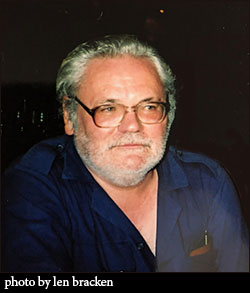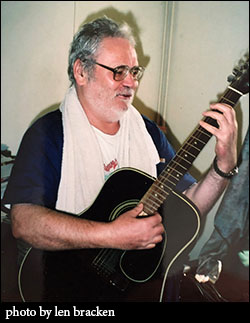
It’s very important to be cool, Michel Prigent once told me in a calm voice—he drew out the last syllable a bit, softly, as if to add that one must have charm and style but certainly not try too hard.
Slanted rays of morning sunlight poured into his apartment through several rows of windows, illuminating the piles of books and papers that were so important to him. He certainly wasn’t trying too hard to be well-organized. If there was any room left for his thoughts, it seemed, it was above the windows, in the low-lit space under the high ceiling.
Never one to reject advice out of hand, I put the comment about being cool under my hat while trying to reconcile it with the striving for authenticity at the heart of the existential Marxism we—Michel and I as well as Sean Delaney—had been discussing during my 2003 stay in London.
“I’ve written a book,” he told us from the chair by his desk. “Did you know that? It’s called The Afternoon Man.”
“No, I had no idea.”
This was something I had always wondered about—that is whether Michel, the translator and publisher of others with his Chronos Publications, had ever written a book-length work himself. I scanned his bookshelf. He instructed me to give him a hardback book that only he would recognize given its spine-in position.
The dust jacket illustration of a man walking into the afternoon sun piqued my interest as it had the appearance of being a novel. Michel reached for the book as I took a step toward him across the room, and he immediately thumbed the pages to show me they were blank.
“The afternoon man only gets up from bed at noon, so he doesn’t have time to write books,” he said, laughing at the anti-art absurdity of his blank book.
I masked my disappointment at there not being any text on the pages while he told me the book was from a work training program he did with a print shop. Michel had been friends with many intellectual and literary figures, notably the theorist Guy Debord but also the author and novelist Elias Canetti, who had been the one to tell Michel about the importance of being cool.
 It would’ve been too much to expect a novel, that I knew, but why hadn’t he written a memoir? At the behest of Sean, who at the time was still publishing Principia Dialectica, Michel pulled out some of his publications—the hand-typed A4 sheets that he copied and side-stapled with The Catalyst Times on the cover or, in the same format, his long essay on The Misery of Football.
It would’ve been too much to expect a novel, that I knew, but why hadn’t he written a memoir? At the behest of Sean, who at the time was still publishing Principia Dialectica, Michel pulled out some of his publications—the hand-typed A4 sheets that he copied and side-stapled with The Catalyst Times on the cover or, in the same format, his long essay on The Misery of Football.
The subject of sports had Michel up on feet to demonstrate for Sean and me his mighty karate chop, completed with the requisite short shout designed to startle and intimidate an opponent. I asked him about mastering fear of death in the practice of karate, or something like that.
“When you’re dead,” he said with an emphatic stomp on the hardwood floor, “you’re gone.”
Michel may be gone but he is not forgotten—he is remembered by those who knew him in large part for his brave and absolute pronouncements, notably those regarding a post-capitalist society where wage-slavery would be abolished on a worldwide basis and work would benefit the entire society.
“Capital is an automaton,” he wrote before noting the deaths of novelist Jean-Patrick Manchette and Guy Debord, adding: “But life goes on.”